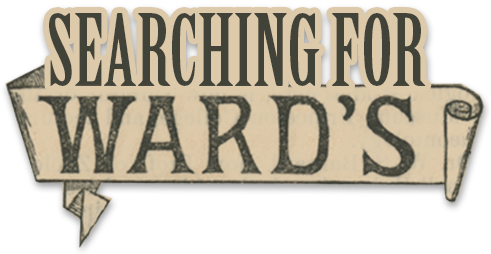
Transcribe Fenn, Robert. Letter to Ward, Henry A. (1855-11)
« previous page | next page » |
Current Page Transcription [edit] [view item]
I expected nothing else than that two weeks of hard work would effectively cure him (not of the disease) but of his agricultural fever, and that like Cincinattus of old he would soon leave the plough, not however to save his country but to return to the bosom of his family. In this I was mistaken , for to the astonishment of his friends he has actualy kept at it more than six weeks and that too without coming home more than four or five times. I expect however that farming is rather </u harrowing > to his feelings though he thinks it has been decidedly beneficial to his health. He has to rise early enough to breakfast ny candle light instead of by daylight besides this he is required to eat with the hands (farm hands I mean). I should think such a change would be anything but agreeable to Mr Bill but as in honor bound he informs me he is very much pleased. With regard to the political dilema which came so near destroying his literary reputation (that it is if a thing that don't exist can be destroyed) I have to say that owing to what might be called an inte- position of providence on his behalf the subject never came to any direct issue as in consequence of the weather or sickness of the young lady, I know not which Bill was never called upon to fulfill his promise. I think he will be more circumspect in future and not involve himself </s again > in another dificulty of a simular nature though I must say that I can exuse a young lady of sixteen </s from > for mistaking him for a Poet as he is by </u nature > nearly related to one of our most distinguished living Bards. Speaking of Bill and his poetical adventure reminds me of an incident which happened to myself a short time since. By some provoking mis- chance ( for I had written expressly to prevent it) a copy of that same piece which I sent you got into the hands of an editor of one of the literary papers of Baltimore and was published with a very flattering, not to say false notice of the author. On reading it)as I remarked to a lady correspondent the other day) i could scarcely believe my own ears and felt very much as a fellow might be supposed to do on reading an obituary notice of himself </s are > or the lauditory epitaph on his tombstone. Well! a day or two after the paper containing the piece arrived a small packet directed to R.H.F. Blind youth, Author of the Charge & c and con- taining a vial of of eye water. Accompanying it was a note giving directions and informing me that the person to whom I was indebted for this disinterested and well meant kindness was a Mr Weisample of Reading Pa. - who I judge to be decidedly a man of </u some parts > as he combines in one person the distinct